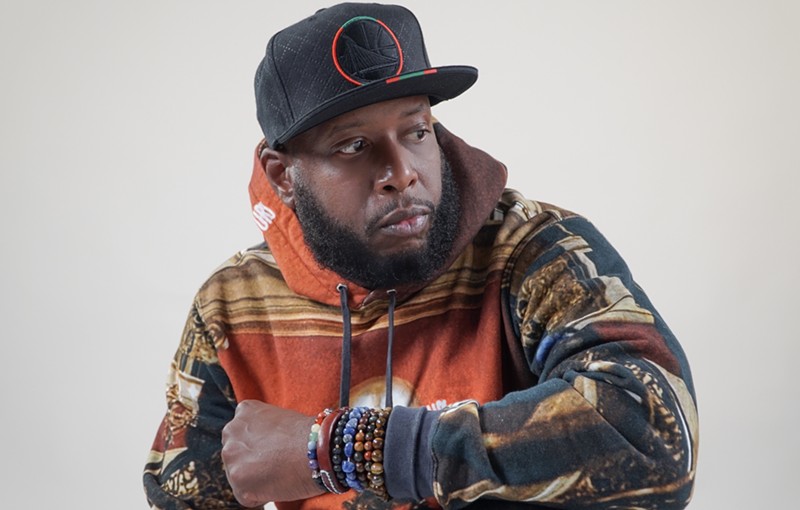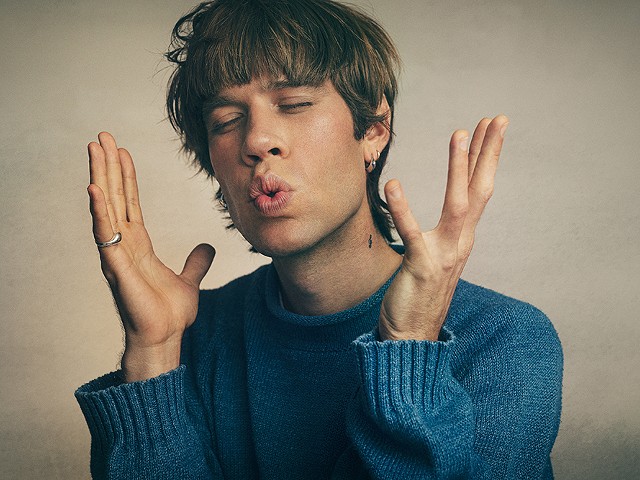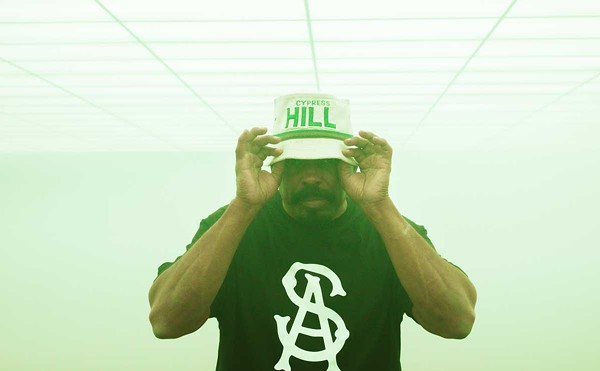As Jay-Z famously said, “If skills sold, truth be told, I’d prolly be, lyrically Talib Kweli.”
Talib Kweli is one of the most highly regarded emcees in hip-hop, and his work serves as a measuring post for artists that strive to bring a sense of consciousness and political awareness to their craft. His 1998 album Mos Def & Talib Kweli Are Black Star with Yasiin Bey (fka Mos Def) is one of the best rap albums of all time, and rumors about a long-awaited follow-up have been swirling around the internet recently. We spoke with Kweli about his upcoming DJ gig on Friday at Detroit's Tangent Gallery, his approach to DJing, and how it all influences his creative process for the new record.
Metro Times: What are you looking forward to the most about Friday’s show?
Talib Kweli: DJing is one of my favorite things to do at this point, I’m just looking forward to making people smile and dance and have a good time.
MT: Tell us about your connection to Detroit and how it feels to perform in the city.
Kweli: Detroit is such a hotbed of talent. Detroit has cultivated so much great music, from the Stooges to Motown to J Dilla and everything in between. Musically, Detroit is a city that I would like to impress. People in Detroit tend to have a vast musical knowledge. Some of my best friends live there — jessica Care moore is from Detroit, Royce da 5’9” is out there, these are some of my favorite people in the world. I’m looking forward to seeing my friends and this historically dope city.
MT: Who are some of your favorite artists from Detroit?
Kweli: Definitely Dilla and Slum Village, everything surrounding that. What was happening at the Hip Hop Shop. Maurice Malone, Phat Kat, rest in peace to Proof, and of course Eminem and D12 and all of those guys, Denaun Porter. jessica (Care moore) is probably my best friend in the world. We had Sada Baby on our Midnight Miracle podcast, one of my favorite episodes. So yeah, a lot of respect for Detroit.
MT: How long have you been DJing, and how did you get started?
Kweli: I’m the type of guy who, when I get in the car with you, I grab the aux cord. I’m also the type of guy that would often host people at my home, and the most fun part for me of hosting people was playing them music. So I bought some turntables and I started just messing around with it, just as someone that loved music. I had New Year’s Eve party maybe 15 years ago, and I essentially DJed the party and kept people dancing. I remember 88-Keys in particular, he was there dancing all night. That experience made me want to take it out and try it in the world.
To give respect to all the real DJs out there, I don’t even really consider myself a DJ. I do DJ, but I consider myself more of a selector or a curator. While I can blend well enough for people to have fun at a party, I’m not a turntablist. I’m not real technical, I just know how to jam. I used to be more about introducing people to new music, but now after years of doing it, what’s more fun for me than doing that is just letting people have fun. The challenge to me is learning how to read the crowd, and the better that you can read the crowd, the better DJ that you can be.
MT: How does your approach to DJ’ing compare to your approach to music in general?
Kweli: As an emcee my approach to songwriting is I’m leading you, and you’re going wherever I need to go, and if you can’t follow me then you just need to hop off and listen to something else because I’m going there whether you’re following or not. With DJing it’s almost the opposite approach, it’s more about service. I am serving the crowd, and following the vibe of the crowd. In order to be the best servant that I can be, I have to still be a leader. I have to still make decisions and still take chances, so there are leadership qualities involved in DJing, but it’s more in service of the crowd than emceeing is.
MT: Where do you find the balance between playing the hits that you know people will love and playing the tracks that you think more people should know about?
Kweli: It’s the intersection where boxing and stand-up comedy and making music and being on stage all meet, it’s really all about timing. Timing is everything and that can’t be overstated. If you play a new record at the right time it can look like a genius move, if you play a new record at the wrong time it can look like you’re not caring at all.
MT: Do you intuitively feel out all of those moments, or are there some that you plan out in advance?
Kweli: I interviewed DJ Clark Kent once, and I think I recall him saying that he never plans out a set. He’s at that level of DJing, and it’s just all about the vibe of the room. How could you plan out a set without being in the room, before you feel the vibes? What I’ve learned how to do is find a balance. I do plan out sets, but I also make a lot of decisions in the moment. I did a party last week called Soul in the Horn, which is one of my favorite parties to do because the crowd is there to dance. They’re not there to sing along or to exist in the comfort of hearing something that is familiar to them, they are excited to hear new music. The theme of the party is that all the DJs need to play records with horns in them, so it stretches you as a DJ. You can’t just play your usual selections at a party like that.
There’s an artist that I work with named Niko Is. He has amazing music, but it’s not something that people really know. He has a song that samples Héctor Lavoe, so when I started the party I played the original Héctor Lavoe record, which is something that people familiar with Puerto Rican music would definitely know. I was then able to mix it in with Niko’s record, and Niko was there, so it just made a lot of sense to play it even if it was something that most people had never heard before.
MT: Of course, we have to ask, anything you can tell us about the new Black Star album?
Kweli: Creatively I always have a lot of things that I’m working on, but it’s safe to say that the Black Star album is my top priority right now. There’s nothing else that’s more important to me in this moment.
MT: It seems like the DJing could almost act as a palette-cleanser in the creative process. Is there a relationship between the two?
Kweli: Absolutely. I feel like I’ve become a better emcee, a better musician, and a better performer on stage since I’ve become a DJ. It’s really completely elevated my craft, and made me more knowledgeable and attuned to what’s going on musically. And, the idea that I can go DJ a party for three hours and give people that amount of joy without ever having to open my mouth, it’s one of the most relaxing things that I could possibly do.
Talib Kweli will perform a DJ set on Friday, March 25 at the Tangent Gallery; 715 E. Milwaukee Ave., Detroit. Tickets are $15 and are available through MeanRed Productions. Doors at 9 p.m. Detroit's Gulley is also on the bill.
Stay connected with Detroit Metro Times. Subscribe to our newsletters, and follow us on Google News, Apple News, Twitter, Facebook, Instagram, Reddit, or TikTok.






